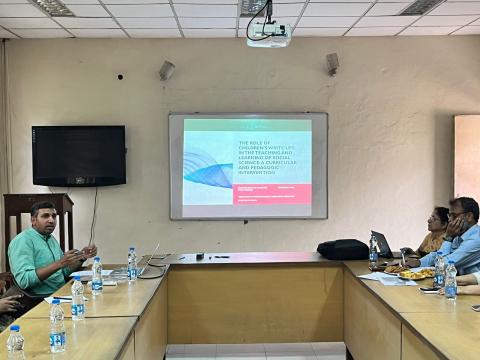
Navigating the PhD Journey: Challenges, Strategies, and Reforms
Pursuing a PhD is not just about earning a degree—it is a profound commitment to research and contributing to a field you are passionate about. Unlike other academic qualifications, a PhD is a journey that demands careful planning, perseverance, and a clear vision of your academic and professional goals. This article explores the challenges and strategies for successfully navigating the PhD process, from selecting a research field and supervisor to understanding the admission policies and preparing for the rigors of academic research.
We discuss the importance of real-world experience, the limitations of traditional admission processes, and the need for a more inclusive and pragmatic system. Additionally, the article emphasizes the critical role of bridging gaps between universities and schools to foster meaningful research. Whether you are considering a PhD or already on this path, this guide offers valuable insights to make your journey smoother and more impactful.
PhD is fundamentally different from other degrees. It's not just about earning a qualification—it's a commitment to a field you are passionate about, with the degree being merely a byproduct. Contributing to this field is a lifelong journey.
Choosing a Research Field and Supervisor
Selecting a broad research field requires careful consideration of your interests, passion, the field's demand, and available opportunities. Once a field is chosen, the next step is identifying scholars working in it. Connecting with scholars can be done by attending relevant seminars and conferences. Build a list of potential supervisors and plan how to initiate conversations with them.
After finalizing a supervisor, the search for a university becomes more straightforward, as the supervisor's affiliation often determines the institution. Following the university's admission procedure ensures a smoother journey. Conversely, students who start a PhD without thorough planning often face significant challenges, sometimes leading to dropouts.
Limitations of Traditional Admission Processes
- Students may join without properly assessing their aptitude for research.
- Insufficient time is given for researchers to refine their research focus.
Recommendations for a Better PhD System
A PhD should not be seen as just another degree but as preparation for a lifelong commitment to research. Candidates should have real-world exposure to problems they aim to solve, ideally gaining 2–3 years of work experience after completing their postgraduate studies. Practical experience in the field is as important as theoretical knowledge.
There should be structured training in research writing, integrated with existing qualifications like the NET exam. Currently, students often learn academic writing through trial and error.
Equity and Inclusivity in PhD Admissions
While the approach of identifying a supervisor first may seem ideal, it risks privileging those with better access to academic networks. This could marginalize students from socio-cultural backgrounds lacking such capital. A truly democratic system must ensure equal opportunities for all applicants. The current system, while not perfect, is more inclusive and needs to be refined to balance pragmatism with equity.
Bridging the Gap Between Universities and Schools
Collaboration between universities and schools must be encouraged. Universities should draft policies to facilitate research by teachers, and schools should provide opportunities for their premises to be used as research sites. Such collaboration benefits both institutions. Teachers pursuing PhDs become invaluable assets, contributing to the advancement of knowledge and education.
Conclusion
Pursuing a PhD is far more than obtaining a degree—it is a lifelong dedication to advancing knowledge in a chosen field. This journey requires careful planning, from identifying a research area and connecting with potential supervisors to navigating the complexities of admission procedures. While the current system has its merits, it also has significant limitations, such as its inability to accommodate diverse socio-cultural backgrounds and ensure equal opportunities for all.
This article highlights the need for a balanced and pragmatic approach that values both academic aptitude and real-world experience. Bridging the gap between universities and schools can create a more collaborative and inclusive environment, fostering impactful research. By rethinking the admission process and providing adequate training in research and writing, we can build a system that not only supports aspiring researchers but also enriches the academic community. A PhD, ultimately, should empower individuals to contribute meaningfully to society.
- Log in to post comments
